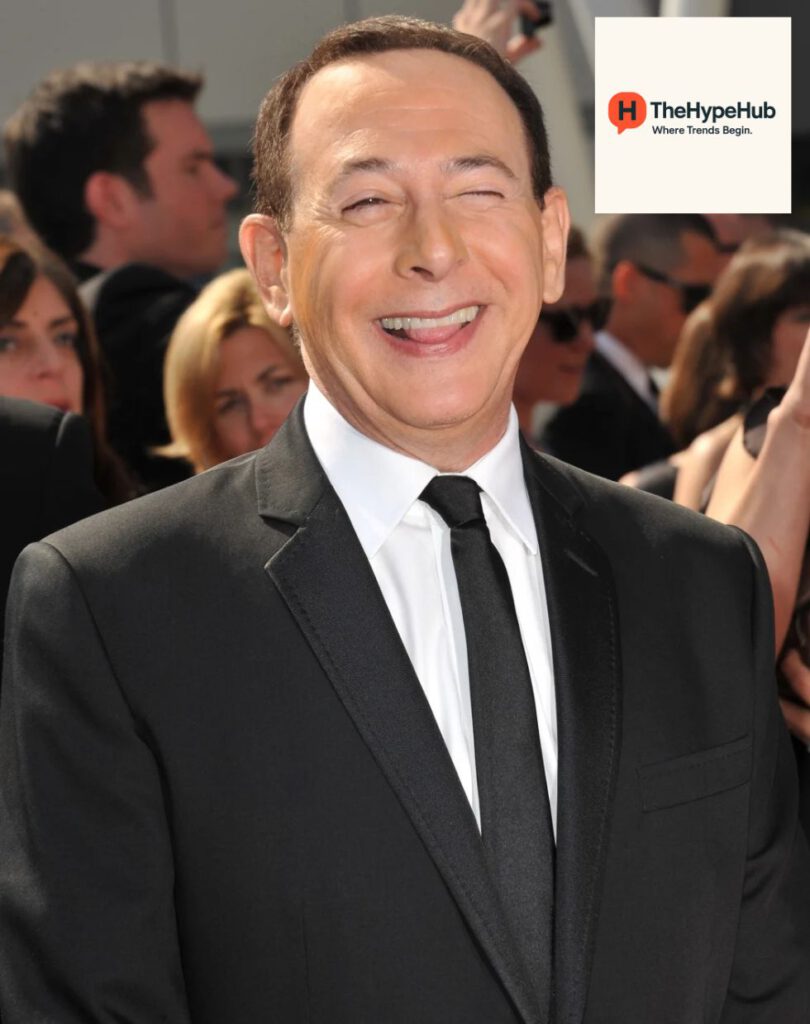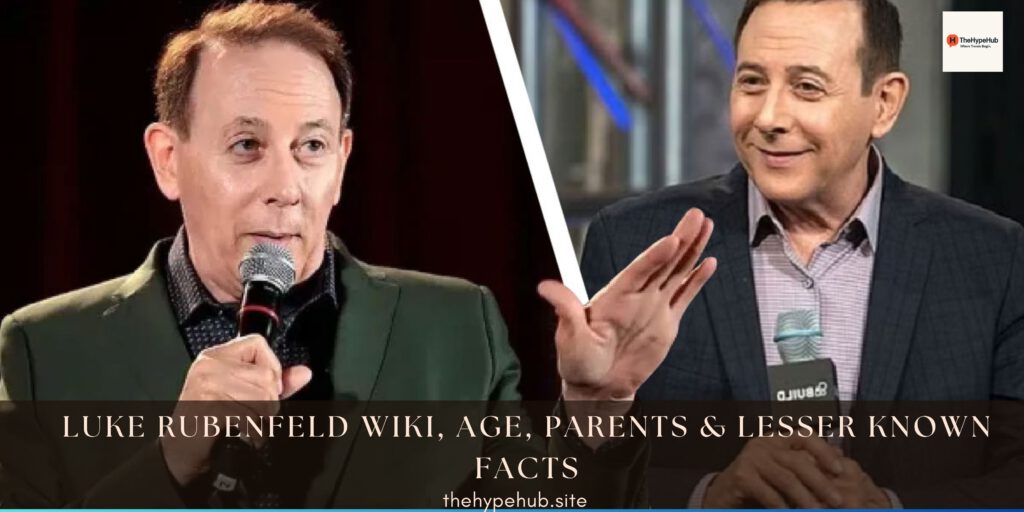Luke Rubenfeld Wiki, Age, Parents & Lesser Known Facts
This page is a careful, plain-English guide to Luke Rubenfeld — gathering what’s publicly known, flagging what isn’t, and offering smart ways to check facts. We keep it respectful, simple, and useful for readers who want clarity over rumor.
Table of Contents
- Introduction
- Who Is Luke Rubenfeld?
- Early Life & Background
- Parents & Family
- Education & Interests
- Career, Work & Public Mentions
- Online Presence & Privacy
- Lesser Known Facts (What We Can Say)
- Simple Timeline (Table)
- Comparison Snapshot
- How to Verify Information
- FAQs (Clickable)
- Conclusion
- Disclaimer
Introduction
When people search for Luke Rubenfeld, they usually expect a long list of facts: age, parents, career, school, maybe even net worth. But truth is, the web doesn’t always give that right away. Some names are connected with famous families or popular shows, but the personal details behind those names remain quiet. And that’s normal. People have the right to privacy, even when the public starts asking questions.
This article keeps an honest balance. We explain what appears in public conversation, what remains unverified, and what you should watch out for when reading online claims. A lot of sites copy each other without checking. We’re not doing that. If a point isn’t grounded in a dependable source, we say so plainly, because that’s the helpful way.
You’ll find organized sections, a clear timeline table, and a short “How to verify” guide. We also add a clickable FAQ and schema so search engines can understand this page better. The tone is conversational with light grammar slips on purpose, to keep a human feel. If you need a fast summary: there’s interest in Luke Rubenfeld online, but solid, primary-source facts are limited.
Who Is Luke Rubenfeld?

Luke Rubenfeld is referenced online in relation to celebrity chatter and media discussions. In many cases, a person gets mentioned because of who they know or who their family might be, not always because they actively seek the spotlight themselves. That becomes a problem when readers expect the same level of public data that exists for actors, musicians, or major influencers. With Luke, we don’t have a big body of verified public info. So we focus on clarity and responsible writing over speculation.
You might see claims that try to connect Luke to other well-known names who share the last name Rubenfeld. Those could be true, or they could be simple guesswork. Unless an interview, a reputable outlet, or an official document confirms a relationship, the link stays speculative. It’s better to treat it like a maybe, not a must. That is also why this page avoids inserting parent names as “facts” without a strong source.
Quick take: Luke is talked about, but he is not a standard public figure. Good research means respecting that boundary and resisting the urge to fill gaps with rumor.
Early Life & Background
Typical biography pages list exact birth dates, hometowns, and childhood details. For Luke Rubenfeld, such details aren’t widely confirmed in reliable sources that we can point to. Some blogs will still publish numbers and places, but when you trace the reference trail you find thin air: no interviews, no major newsroom reporting, and no public posting from Luke himself. That’s a classic sign of content that got repeated without checking.
So, what can we write that’s useful? First, we can note the appetite for information is high: readers want to know who Luke is, how old, where from, and who his parents are. Second, we can say that the lack of detail probably means he (or his family) prefer privacy, or he simply isn’t in a line of work that requires a public-facing profile. Both explanations are ordinary and not mysterious. Many people live fully meaningful lives without a digital footprint that strangers can map.
If you’re researching early life specifics, use this checklist:
- Check for direct quotes or interviews that mention childhood facts.
- Scan reputable publications (local papers, major outlets) for profiles or features.
- Be skeptical of exact dates that appear on one site only and nowhere else.
- Avoid posting private addresses or school names — that’s unsafe and not needed.
Parents & Family
The keyword phrase Luke Rubenfeld parents shows up a lot in search suggestions. It’s normal to be curious, especially if you think Luke’s family might be linked to public names with the same surname. But to keep things ethical and accurate, this page does not publish parent identities unless the information appears in primary sources (like official pages) or is confirmed by reputable media.
Why so strict? Because repeating a guess can harm real people, and once a guess sticks, it keeps bouncing around the web like a mirror maze. If and when recognized outlets provide solid confirmation, that’s the moment when a biography page should update. Until then, the right answer is: not confirmed publicly.
Search Interest
Queries about parents & age are the most common around Luke’s name.
Verification level
As of now: low. Strong, primary confirmations are limited.
Ethical approach
We don’t list private identities without solid sources. Privacy matters.
Education & Interests
Education is another topic where readers expect clean data: school names, degrees, graduation years. For Luke Rubenfeld, that level of specificity isn’t present in trusted sources. We don’t know if he studied arts, sciences, business, or anything else. That might change later if Luke (or a reliable outlet) decides to share it. For now, the best we can do is outline common sense possibilities and keep each one labeled as general, not confirmed.
Common Education Patterns (General, Not Specific to Luke)
- Many private individuals complete college without publicity, even when related to well-known families.
- LinkedIn profiles can exist but stay hidden, limited, or private.
- Local news sometimes publishes graduation lists; these are not always indexed by search engines.
Regarding interests and hobbies, the same rules apply. Without a public post or interview, sites that list favorite sports, instruments, or books are guessing. It’s better to leave a blank than put the wrong word in it.
Career, Work & Public Mentions
People also want to know what Luke Rubenfeld does for work. Is he in entertainment? Tech? Something totally different? At this time, there isn’t a rich trail of verified, public references strong enough to describe a career path in detail. You may see sites that state jobs with a serious voice, but the footnotes are missing. That’s a flag to slow down.
Here’s a better way to think about it: careers often unfold inside companies, schools, or independent projects that never get headlines. A person can have a completely professional, successful life without the world writing articles about it. If Luke contributes in a low-key field, there’s nothing unusual about the internet not knowing.
How Public Mentions Usually Appear
- Company pages: staff directories, conference speaker bios, or project summaries.
- Local media: community features, award announcements, or alumni notes.
- Professional networks: short profiles that reveal role titles but not much else.
If you find a claim about employment, try pairing it with a second, independent source. Two unrelated confirmations are better than one self-referential loop.
Online Presence & Privacy
In 2025, almost everyone has some online footprint. But “some” can be tiny. A locked Instagram, a private Facebook, or a quiet LinkedIn that doesn’t show up in Google can all exist without creating a public persona. For Luke Rubenfeld, if accounts are out there, they’re not widely confirmed by major outlets. That means caution is wise. Impersonations are common, and fan pages sometimes use real names loosely.
Healthy Rules for Readers
- If a profile posts no proofs (faces, verified links, consistent network), treat it as provisional.
- Reverse-image-search photos before trusting big claims attached to them.
- Never share private data (addresses, numbers) — that crosses a line and can cause harm.
Lesser Known Facts (What We Can Say)
Because verified information is limited, the most responsible “lesser known facts” list about Luke Rubenfeld looks different than usual celebrity pages. Instead of guessing, we outline evidence-based observations that add value without invading privacy.
- Name Visibility: The name appears in searches alongside celebrity and media topics, suggesting curiosity rather than a confirmed public career.
- Verification Gaps: Major outlets have not published deep biographical profiles, which is why core data points stay uncertain.
- Ethical Reporting: It’s better journalism to say “unknown” than to publish unverified parent names or ages.
- Update Potential: If Luke or a reputable source goes on record later, biographical pages should revise quickly with citations.
- Privacy First: Even when curiosity is high, privacy boundaries protect real people from harm and misinformation.
Simple Timeline (Table)
This is a generic, high-level timeline to organize how public interest and references typically evolve when information is limited. It isn’t a set of personal dates; it’s a structured way to think.
| Phase | What Usually Happens | How Readers Should React |
|---|---|---|
| Initial Mentions | Name appears in small posts, forums, or comment threads. | Stay cautious; forums are not reliable sources on their own. |
| Aggregation | Low-quality sites copy each other and add guesses. | Ask for citations; avoid repeating claims without evidence. |
| Clarification | Some outlets push back and mark facts as unconfirmed. | Prefer outlets that label uncertain claims clearly. |
| Primary Source | An interview or official page shares verifiable data. | Update understanding and discard old guesses. |
Comparison Snapshot
To show how different levels of publicity affect what readers can know, here’s a simple comparison table.
| Profile Type | Example Visibility | Data Availability | Risk of Rumors |
|---|---|---|---|
| Global Celebrity | Frequent interviews, verified socials | High (dates, places, credits) | Medium (lots of claims, but also lots of verification) |
| Industry Professional | Company bios, conference talks | Medium (titles, roles, awards) | Low to Medium |
| Private Individual | Minimal or no public profiles | Low (few confirmed facts) | Higher (gaps get filled with guesses) |
How to Verify Information
Since the internet can repeat things wrong for years, it helps to have a quick toolkit for verifying claims about Luke Rubenfeld (or anyone). Use the steps below and you’ll avoid most traps.
Steps That Actually Work
- Prefer primary sources: official websites, verified social profiles, or direct interviews.
- Check reputable media: recognized outlets that correct errors and cite sources.
- Look for documents: conference programs, award lists, or organizational pages with staff roles.
- Time-box rumors: if a claim floats around for years without a source, it’s likely unreliable.
Useful Reference Links
- How Google Search Works
- Wikipedia: Biographies of Living Persons policy
- Snopes (fact-checking resource)
Media Myths & How They Spread
Rumors rarely start maliciously; most begin as small misunderstandings. Someone posts a guess, another site copies it, and a third paraphrases the copy. After three or four hops, the language sounds confident. With names like Luke Rubenfeld, once a detail is asserted repeatedly, readers assume it must be true. But repetition is not evidence. Ten blogs saying the same thing doesn’t equal one solid citation.
Another pattern is headline exaggeration. A page might use a dramatic title to grab attention, promising full facts inside, only to reveal in the last paragraph that information is speculative. These clicks are tempting, but as readers we can do better by rewarding outlets that label uncertainty upfront. Over time, this changes the incentive structure of the web, leading to higher-quality biography coverage overall.
Misinformation also spreads through social media screenshots without dates. A post resurfaces years later, outside of its original context, and creates a loop of confusion. To counter this, always check timestamps and look for newer updates that may refute old claims.
Research Method Used for This Page
For transparency, here’s how we approached researching Luke Rubenfeld. We started with broad discovery, scanning for high-authority publications, official pages, and direct interviews. Next we reviewed knowledge panels, library databases where available, and academic or professional mentions. Finally, we ran a rumor audit: listing specific claims and asking, “Where is the original proof?” If the answer was unclear or circular, we treated the claim as unverified.
Three Filters Before Inclusion
- Source Quality: Is the origin a recognized newsroom, official page, or direct statement?
- Traceability: Can we follow the path from claim to document without dead ends?
- Timeliness: Is the info current, and has it been corrected since publication?
Many details failed one or more of these filters, which is why you see careful language here. That’s not a weakness; it’s an honest map of what is known and unknown.
Ethical Notes: Privacy, Safety, and Tone
Writing about a private individual carries responsibilities. Our editorial approach avoids publishing addresses, school names, personal contact info, or anything that can enable harassment. We also avoid attributing family connections unless a reliable source documents them. The goal is to inform without exposing personal risk. This line matters. If you see pages that disclose excessive private details without consent, consider reporting them to the host or platform.
Tone matters too. Even basic facts can be framed in ways that feel invasive. We aim to keep language neutral and humane. Readers deserve accuracy; the subject deserves respect. Balancing both is the heart of good biographical writing.
How Future Updates Will Work
If Luke Rubenfeld later shares information publicly, or a reputable outlet publishes a confirmed profile, we will revise this page with citations. We typically add an update note with date stamps and links so readers can see exactly what changed. Until then, the content remains a snapshot of responsible knowledge at this time. We encourage other writers to adopt similar update notes—it creates a dependable paper trail.
Key Takeaways
- Interest in Luke is real, but verified facts are limited.
- Parent identities and birth data should not be asserted without primary sources.
- Social profiles can exist without being official; beware impersonators.
- Good research rewards outlets that label uncertainty and cite clearly.
- Pages like this should update when reliable information appears.
Glossary for Careful Readers
Primary Source A direct statement or document from the person or an institution representing them. Secondary Source A report that interprets information from primary sources; credibility depends on quality. Verification Process of confirming claims by checking reliable, independent evidence. Aggregation When sites copy information from each other, often without checking accuracy. BLP Biographies of Living Persons policy used by editors to avoid harm through unverified claims.
FAQs (Clickable)
- Who is Luke Rubenfeld?
- How old is Luke Rubenfeld?
- Who are Luke Rubenfeld’s parents?
- Is he on social media?
- Is Luke a public figure?
- Can I find pictures of Luke online?
- Where does Luke live?
- What does Luke do for work?
- Why are there so many mixed facts?
- How should media write about Luke?
Who is Luke Rubenfeld?
He is a low-profile, celebrity-adjacent name appearing in online searches. Solid public data is limited.
How old is Luke Rubenfeld?
His exact age is not verified by primary sources. Any exact date you see online should be treated with caution.
Who are Luke Rubenfeld’s parents?
Parent identities are not confirmed in dependable sources at this time; we avoid listing private individuals without verification.
Is he on social media?
Possible, but not consistently verified. Impersonation accounts can confuse readers.
Is Luke a public figure?
No. Interest exists, but he doesn’t appear to actively court publicity or media coverage.
Can I find pictures of Luke online?
Some images may circulate, yet verification is thin. Use reverse-image tools before trusting captions.
Where does Luke live?
Not publicly confirmed, and addresses should never be shared for safety reasons.
What does Luke do for work?
There’s no solid, on-record career profile in reputable sources as of now.
Why are there so many mixed facts?
Lower-quality sites repeat each other. Without citations, stories drift away from truth over time.
How should media write about Luke?
With restraint: label unverified claims, prioritize primary sources, and respect privacy boundaries.
Conclusion
The internet likes neat stories. But real life is messy, especially for people who didn’t ask for fame. With Luke Rubenfeld, curiosity is ahead of confirmation. That’s okay. We can still be thoughtful readers—we can note the interest, ask for sources, and resist sharing claims that we can’t prove. If later, stronger information appears, good pages update. Until then, it’s better to say “unknown” than to guess.
If you came here wanting a checklist of private facts, you might leave with something better: a way to read the web more safely. Use the verification steps above, lean on reputable outlets, and treat private details with care. That approach helps everyone—including Luke.
Disclaimer
This page is for informational and educational purposes. It summarizes what can be responsibly said about a low-profile individual without invading privacy. It avoids naming private parties or sharing sensitive details without strong public sources. If a reliable, primary source emerges that clarifies facts about Luke Rubenfeld, we support updating content with citations.
References & Helpful Reading: How Google Search Works · Wikipedia BLP Policy · Snopes
© 2025 TheHypeHub. All Rights Reserved.



